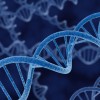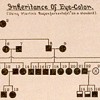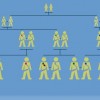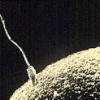Posts tagged Inheritance

Controlling gene expression through diet
Feb 16th
Epigenetics is the study of chemical reactions that control the on and off switch of genes at specific times and the factors influencing them. Environment is a factor that influences epigenetic change which may encompass behavior, stress or diet. The easiest of the three to make observations from is diet. When we think of food, rarely do we think of chemical modifications to DNA and restriction of gene activity. Commonly we think of foods coming in and being broken down into nutrients to be utilized in metabolic pathways to make components the body can use. Interestingly one of the pathways More >

The Medical Sleuth
Oct 31st
When we think of a detective the first thing that comes to mind is an investigator, either a member of a police agency or a private entity. However there are unique detectives within the multifaceted arena of medicine. All though we might already think of most doctors as detectives there are special doctors, units, working at the National Institute of Health’s (NIH) undiagnosed disease program. Doctors such as William A. Gahl at the NIH are disease detectives that try to elucidate the causes and genetic basis involved in the hundreds of unsolved and mysterious diseases that arise each year. Dr. Gahl More >

Autumn Leaves
Oct 28th
Autumn is my favorite season. I enjoy the cool weather, unpacking my sweaters from the attic and sleeping under my cozy comforter. But better than all of the above are the fantastic red, yellow and orange leaves that adorn the deciduous trees here in New York. Before I worked at the DNA Learning Center, this process was simply a beautiful rite of fall. Now, I see the whole process in a different light. It’s an elegant series of genetic steps that evolved millions of years ago, for a reason much bigger than beauty!
For most of the year, deciduous trees are More >

Fighting Addiction
Aug 13th
Having an addiction can be devastating, to those that have it and to those that are exposed to it. The addiction can be to a variety of different things such as alcohol, drugs, gambling, internet shopping, video games or even work. But what causes these addictions? Why do some people have the ability to enjoy these things, yet leave them, while others seem to never be able to stop?
Well, it could be your family and it could be your environment. Studies have shown that addictions run in families. In fact, if a parent has an addiction, the child is 4 More >

One Hundred Years Later….Eye Color Genes "Visualized"
May 17th
Understanding the inheritance of eye color has been a challenge for decades. Most parents try to make their best guess about their unborn child’s eye color, hoping for that warm brown or the more rare bright blue outcome.
"Eye Colors in Man," from The Trait Book, ERO Bulletin No. 6, by Charles B. Davenport, 1912 (Archive Image #1913)
Davenport and other eugenicists oversimplified eye-color inheritance early in the last century, and we have since come to discover that several genes determine eye color.
Recently, a group in the Netherlands has taken our understanding a step further by using high resolution imaging and More >

Sexual Selection
Apr 1st
When we think about all of the living things on Earth, we immediately see how different we all are from each other. Many of these traits that might seem bizarre to us, evolutionarily speaking, have a tremendous amount to do with the survival. Many traits have been selected for by the opposite sex, because it will help the passing on of their design information.
One very amazing example of this is the Widowbirds that live in the grasslands of southern and eastern Africa. During the non-mating season, the males and females look very similar to one another. Once breeding season begins, More >

Eliminating Undesirable Traits
Feb 18th
Eugenics aimed to eliminate undesirable traits. But how do you define “undesirable”? There is anecdotal evidence that the incidence of some disorders has decreased due to genetic testing (see “Testing Curbs Some Genetic Diseases,” by Marilyn Marchione). In and of itself, this is a good thing, but is this eugenics? It would be hard to argue that most genetic diseases are undesirable; but some of the steps taken to eliminate disease — abortion, embryo screening — are controversial.
In contrast, there was a an effort to prevent hereditary blindness within the eugenics movement. Its proponents collected pedigrees, drafted legislation to prevent More >

Genes Don’t Exist to Cause Disease
Feb 17th
It is not uncommon during labs on mutations, to discuss that mutations can cause genetic disease. Students will use the phrase “the gene for breast cancer” or “the gene for hemophilia” when these discussions take place. What many think, is that individuals with breast cancer or other genetic diseases have a gene that others do not. In reality, they have a gene that everyone has, but the gene has a mutation that affects its function. Genes don’t exist to cause disease. This is a recurrent theme for me!
For example, when someone has hemophilia (a blood clotting disorder), there is a More >

Genetic Disorders Go B/Hollywood
Dec 1st
Remember Brad Pitt as Benjamin Button? Benjamin’s disorder, that had him being born looking like an 80-year-old man and “reverse aging” to pass away as a baby? Well, while I still am not aware of a real disorder that causes this kind of a phenomenon, there is a disorder that indeed makes people age much faster than normal: Hutchinson-Gilford Progeria Syndrome (Progeria for short), which is about to be depicted in a movie of its own.
Progeria is a very rare, genetic disorder that afflicts roughly one in 5 million people. It is caused by a mutation in the LaminA gene More >

Some Cells Have 23 Chromosomes
Nov 25th
It is a game of chance! With one spin of a wheel, X and Y chromosomes, represented by pink (X) and green ping-pong balls (Y), are passed from each parent to a child. When the wheel stops, the baby is either a boy or a girl – depending on which chromosomes were inherited. It is a simple, yet powerful tool that demonstrates basic chromosomal inheritance. It is easy to see that every time the wheel is spun, there is a 50/50 chance of having a boy or a girl.
Demonstrations with this wheel have led to some very interesting student responses and questions. I have More >
